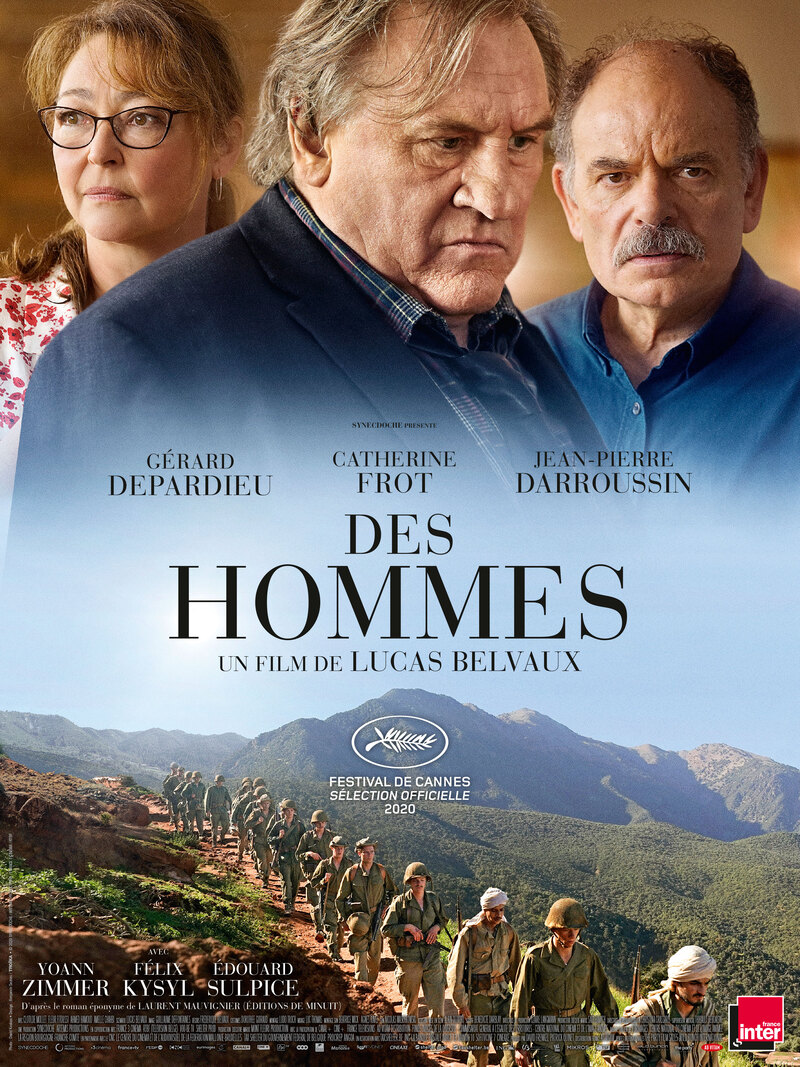
An incident causes three members of a rural French family to reflect on
the legacy of the Algerian War.
Review by
Eric Hillis
Directed by: Lucas Belvaux
Starring: Gérard Depardieu, Catherine Frot, Jean-Pierre Darroussin, Yoann Zimmer,
Félix Kysyl, Edouard Sulpice

Despite France's actual involvement in Vietnam, the Algerian War of
Independence is largely considered "France's Vietnam." As with the
American intervention in South East Asia, it was a case of a heavily
militarised army struggling to beat a guerilla force on their own land,
losing the battle for hearts and minds along with the actual conflict.
Similarly, it saw young French men commit atrocities against the native
population, leaving scars embedded in the psyche of a generation.

Lucas Belvaux's Home Front might be considered
France's attempt at The Deer Hunter. Like Cimino's film, it opens with a celebration. It's the birthday of
Solange (Catherine Frot), and most of her small rural community
have gathered in the town hall. The merry-making is disrupted by the
arrival of her brother, Bernard (Gérard Depardieu), who gifts her
a brooch, only to be accused by the gathered crowd of stealing it from
his own mother. It's quickly established that Bernard is the town's
ne'er do well, a wild animal they've struggled to live alongside. After
spewing racist bile at an Algerian immigrant, Bernard heads to the local
pub, gets drunk and attempts a harrowing home invasion at the house
where he once lived, now occupied by the Algerian's family.
The police are advised by the town councilor and Bernard's
long-suffering cousin Rabut (Jean-Pierre Darroussin) to let
Bernard sleep it off before arresting him first thing in the morning,
such is his propensity for violence. That night, neither Rabut nor
Solange can sleep. Rabut recalls his time serving in Algeria with
Bernard, both men barely in their twenties, while Solange digs out the
letters she received from Bernard while serving.

As it seems for the first time, Solange is reading between the lines of
her brother's letters, we flashback to Algeria, where we witness a young
Bernard (Yoann Zimmer) become dehumanised by the horrors he
witnesses at the hands of both his allies and enemies.
Home Front's Algerian sequences make for a gruelling and upsetting watch, with
children killed by both sides and bodies found desecrated by unthinkable
tortures. A committed pacifist, the young Rabut (Edouard Sulpice)
finds himself clinging to his cousin, the rest of his platoon refusing
to associate with him. Rabut takes regular beatings from his own men,
refusing to fight back. They boast of fighting for France but can't see
the irony of attempting to crush a resistance in a land they've invaded.
Bernard strikes up a friendship with the pro-French family of a young
woman he has fallen for, but in his mind he admits that if he were
Algerian he would likely side with the rebels.

It's Bernard's paternal adoption of a young girl that ultimately sends
him home with scars that will never heal. While the film doesn't condone
his racism, we see where it emerged. In the coldness of his fellow
villagers we mourn a missed opportunity to help Bernard heal from his
psychological wounds. As we're told by both Bernard and Rabut, any
attempt to discuss the horrors they witnessed were dismissed by their
fathers and grandfathers, who claimed they went through worse hardships
in the World Wars. Bernard is a ticking time bomb, a festering wound
society was never willing to salve for fear of getting stained by his
blood. Most of the men of his generation will be dead soon, but
Home Front suggests their experiences will leave a lasting
impression on their communities.


